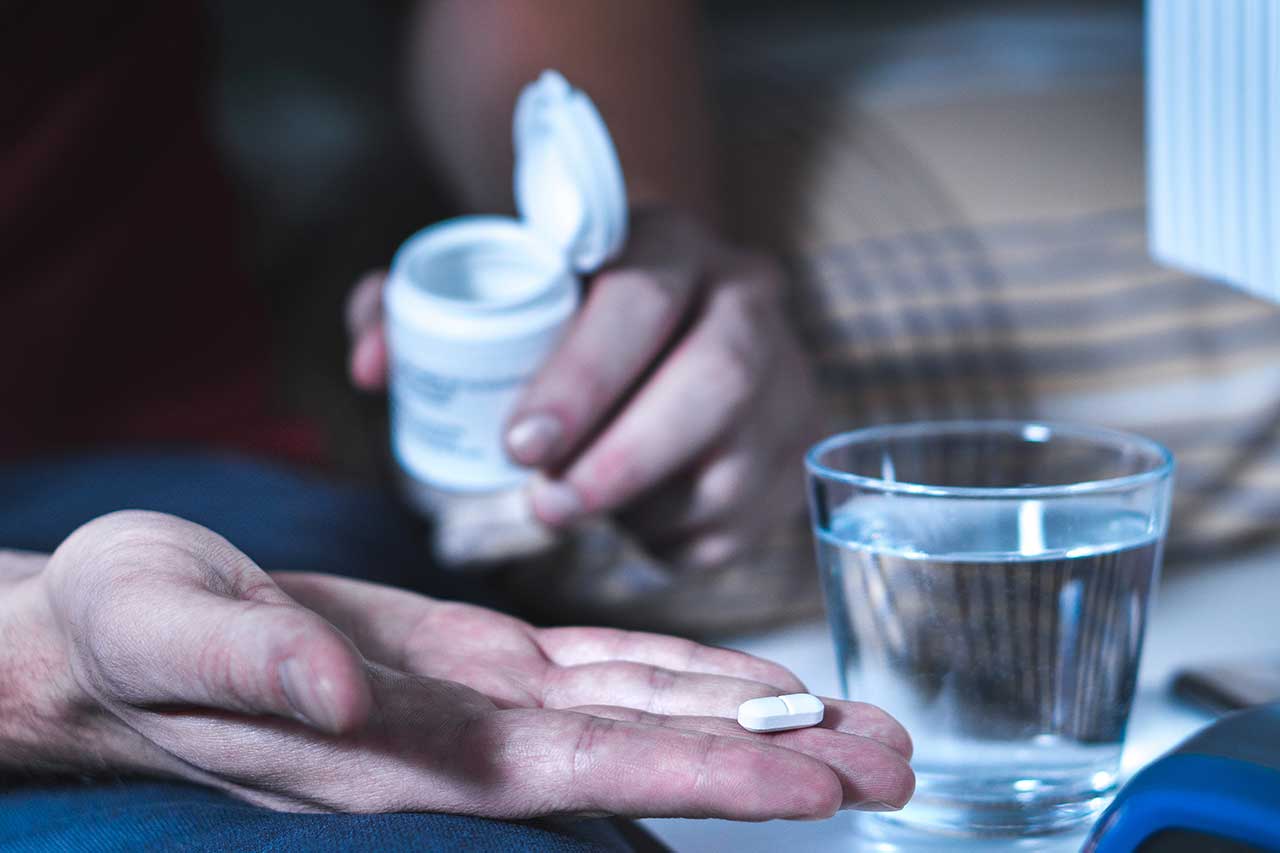
How to Deal With Drug Addicted Parents
February 15, 2022
Can You Overdose on Sleeping Pills?
March 1, 2022
How to Deal With Drug Addicted Parents
February 15, 2022
Can You Overdose on Sleeping Pills?
March 1, 2022
Adderall is a central nervous system stimulant that’s prescribed to people with attention deficit hyperactivity disorder (ADHD). It works by changing the levels of certain neurotransmitters in the brain to increase the person’s ability to pay attention, stay focused, and control behavioral problems. Adderall also helps people with ADHD organize their tasks, improve their listening skills, and perform better at school or work. Unfortunately, due to its potential for abuse, it’s important to be on the lookout for Adderall addiction signs and side effects.
Can You Get Addicted to Adderall?
Yes, you can get addicted to Adderall. Adderall is addictive due to its effects on the central nervous system. Like methamphetamine, Adderall works by increasing dopamine and norepinephrine levels in the brain.
While dopamine is the body’s “feel-good” chemical that creates a rewarding effect, norepinephrine affects how the brain responds to certain events, such as attention and reaction time. Together, when elevated, these chemicals can produce an unnatural high that feels good.
An Adderall high is euphoric and energizing, which encourages further drug-taking behavior. As a result of long-term Adderall abuse, a person may develop physical dependence, in which they must take the drug to feel “normal.”
Without Adderall, someone who’s addicted to the drug may feel mentally foggy and tired. These are referred to as withdrawal symptoms, which occur when someone dependent on a drug goes too long without taking it or cuts back on their use.
Adderall withdrawal symptoms are strong signs of addiction. However, many people with Adderall addictions didn’t start using the drug with the intention of becoming addicted. Usually, Adderall addiction is the result of slowly increasing doses.
A person with ADHD who takes Adderall may become reliant on their medication to be productive or successful at work or school. Some people even fake symptoms of ADHD to get prescriptions for Adderall so they can perform better academically or at work. Additionally, withdrawal symptoms can make it difficult for someone with an Adderall addiction to quit without help.
Many people who stop using Adderall with the intention of quitting will often relapse during the withdrawal period because symptoms are highly uncomfortable. For this reason, getting professional help and undergoing medically monitored detox can improve your chances of quitting successfully.
Side Effects of Adderall Addiction
Many people who engage in Adderall abuse believe the drug is safe because it’s prescribed by a doctor. Adderall is prescribed to people with ADHD, and doses and frequency of use are determined based on the person’s age, the severity of symptoms, and more. So much is considered when prescribing medications, so it's not safe to take medications like Adderall without a prescription.
In reality, Adderall is a strong stimulant that can lead to serious and potentially deadly side effects. Common side effects of Adderall abuse include:
- Euphoria
- False sense of well-being
- Increased energy
- Anxiety
- Paranoia
- Hallucinations
- Irregular heartbeat
- Loss of appetite and weight loss
- Nausea and/or vomiting
- Insomnia
- Sexual dysfunction
- Depression
- Dry mouth
- Fatigue
- Seizures and convulsions
- Stomach pain
- Constipation
- Frequent urge to urinate
- Headache
- Dizziness
- Lower back or side pain
- Twitching
- Peeling skin
Instead of taking Adderall orally as it's meant to be used, people who are addicted to the drug may crush the pills and snort them to increase the intensity of the high. Snorting Adderall produces an immediate high, as the drug is shot directly into the brain and finds its way into the bloodstream. Despite the quick high, this form of Adderall abuse comes with additional risks.
Snorting pills, in general, destroys the nasal and sinus cavities, breaking down cartilage in the nose to produce breathing problems, including nose whistling. The longer someone snorts Adderall, the more damage that is done. Snorting Adderall and using it in high doses also increase the risk of overdose, which can potentially be fatal.
Adderall Addiction Signs and Symptoms
Although Adderall addiction is possible, not everyone who uses it for a long time is addicted. Physical dependence, or the increased tolerance to the drug, can occur in a patient who takes Adderall for more than four months or longer. While physical dependence is a potential sign of addiction, it doesn’t guarantee the issue.
So, how can you tell if someone is addicted to Adderall? The key to recognizing Adderall addiction is catching certain behaviors. Someone who’s addicted to Adderall will prioritize their use of the drug over most other things in their life.
Common Adderall addiction symptoms and signs include:
Behavioral symptoms:
- Being overly talkative
- Social withdrawal
- Financial troubles and difficulties
- Secretive behavior
- Relationship problems
- Frequently taking pills
- Sleeping for long periods
- Running out of prescriptions early
- Impulsive behaviors
- Going from one doctor to another for prescriptions (doctor shopping)
- Needing larger doses to feel the same effects
- Wanting to reduce the use of Adderall but being unable to do so
- Using Adderall despite knowing the damage it’s causing
- Being unable to perform at work or school or unable to feel alert or “normal” without Adderall
- Spending a lot of time and money obtaining, using, and recovering from Adderall
- Neglecting other activities or responsibilities for Adderall
- Experiencing withdrawal symptoms when not using Adderall
Physical symptoms:
- Loss of appetite
- Mood swings
- Unusual excitability
- Reckless or irresponsible behavior (such as driving under the influence of Adderall)
- Aggression
- Exhaustion
- Excessive weight loss
- Memory loss
- Incomplete thoughts
- Decline in personal hygiene
- Overworking or over concentrating
- Disorientation
- Mania
When someone is addicted to Adderall or another substance, they are physically and psychologically dependent on the drug to feel good and normal. The use of the drug eventually becomes the person’s main priority, which can lead to a lot of physical damage and heartbreak along the way. If the addict doesn’t get help, they will go to great lengths to get what they want.
How to Kick Adderall Addiction for Good
The longer you abuse Adderall, the stronger your addiction can become. Withdrawal symptoms may begin to occur shortly after quitting, which can make it difficult to stop on your own. Fortunately, there are plenty of options available at our Christian drug rehab that can help.
We offer Adderall addiction treatment that addresses both the physical and psychological aspects of addiction recovery. With the help of our medical team and expert counselors, clients will be given all the guidance necessary to sustain long-term sobriety.
To learn how our faith-based drug treatment programs can help you or someone you care about get sober, contact Faith in Recovery today at 888-280-4763.
Related Reading:
Does Adderall Cause Anxiety?
Focalin Side Effects

